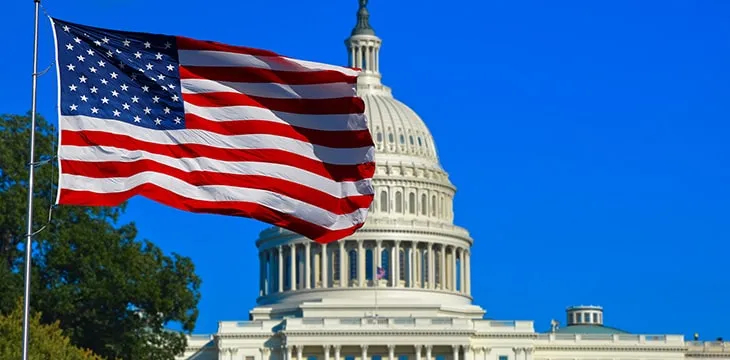|
Getting your Trinity Audio player ready...
|
The U.S. Congress is concerned about the environmental impact that block reward mining has and is set to hold a hearing as soon as this month on the issue, a new report has revealed.
In the past few months, the U.S. has shot up to become the world’s biggest block reward mining hub, aided by China’s purge of all miners. At close to 40% of the global BTC hash rate, it accounts for more than double that of second-placed Kazakhstan, with Russia and Canada following suit.
The rise of block reward miners in the U.S. has come with its fair share of opposition, be it from members of Congress like Sen. Elizabeth Warren (D-Mass.), to the several dozen environmental preservation groups that have been writing to Congress in protest or the thousands of residents who have even taken to the streets in protest.
According to a digital currency news outlet report, the U.S. Congress is about to step in. In its report, the outlet claims that a Congressional subcommittee is preparing a hearing to examine the impact that digital currency mining has on the environment.
The report claimed that the hearing could take place as early as this month, citing three anonymous sources with knowledge on the matter. Conducted by the Oversight and Investigations subcommittee of the House Energy and Commerce Committee, it will reportedly invite some of the leading stakeholders in the block reward mining sector. The list of stakeholders to be invited is yet to be revealed.
The latest concerns come at a time when globally, governments are raising concerns over the energy usage of block reward miners. Some countries like Iran and Kosovo have had to deny power to the miners during winters or low power supply cycles. In Kazakhstan, BTC miners had to contend with a new threat after a five-day Internet outage ensued following deadly protests.
Sources noted the state of New York has been the source of the biggest concern for the subcommittee members. New York has shot up to become one of the biggest mining hubs in the U.S., with some of the biggest miners setting up shop in the Empire State.
According to a scathing report by the New York Times, miners have been renovating abandoned factories to set up mining farms. It claimed that some miners have been tapping coal plants for their operations, leaving a trail of environmental destruction.
The miners have been in conflict with locals in New York for some time now. In upstate New York, residents took to the street to protest BTC mining that they claimed was ruining a local lake and raising its temperatures.
“The lake is so warm you feel like you’re in a hot tub,” one of the locals, whose house is located close to the lake, claimed at the time.
And it’s not just the locals who are protesting the BTC miners. Over 70 environmental and economic groups wrote to Congress last year protesting the miners.
“As Congress contemplates legislation for cryptocurrencies, we urge you to consider the impacts that Proof of Work mining is having on the climate, clean water, and environmental justice,” their letter to Congress read.
Some U.S. senators have also taken up the outcry and are protesting the rise of the miners. In December 2021, Sen. Warren wrote a letter to Jeffrey Kirt, the CEO of BTC miner Greenidge Generation, questioning the company’s environmental footprint. Greenidge is a co-owner of the BTC mining operation around Lake Seneca in New York that was the source of several protests last year.
Kirt has been adamant that his company is operating within its federal and state environmental permits as he dismissed the protests and Senator Warren’s letter. He claimed that his company has also been growing the local economy by creating jobs.
“The environmental impact of the plant has never been better than it is right now,” he told media outlets.
As the energy debate rages on, Bitcoin SV is leading the way in energy efficiency, with a November report by MNP declaring it to be miles ahead of BTC and BCH. MNP, which is one of Canada’s largest professional accounting and business advisory service firms, singled out BSV’s unbounded transaction processing capacity as the reason for its vast energy efficiency.
“So long as the size or number of transactions on the BSV network exceeds the limitation of the other protocols, BSV is the most efficient in this group,” MNP noted in its report titled “The Search for a More Efficient Bitcoin.”
Watch: CoinGeek New York presentation, A Study of Bitcoin & Blockchain Energy Consumption

 07-03-2025
07-03-2025 





